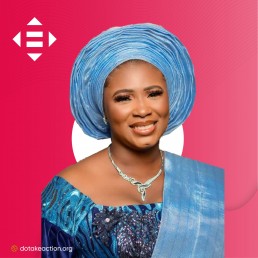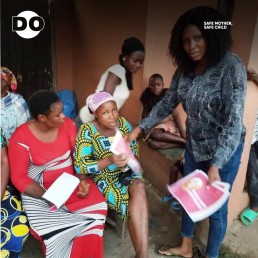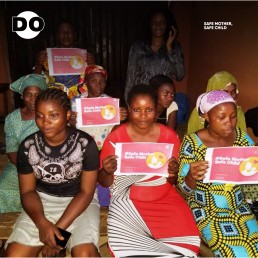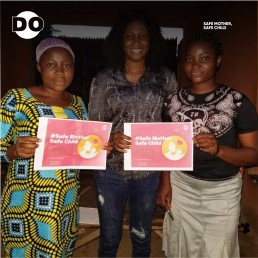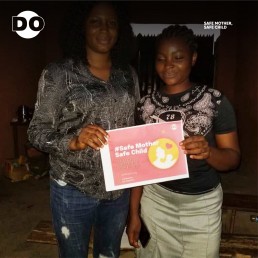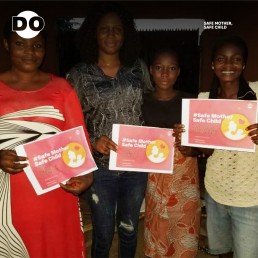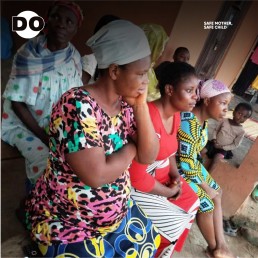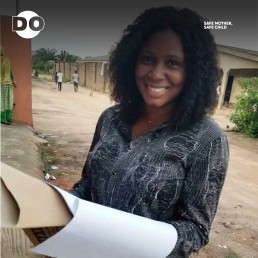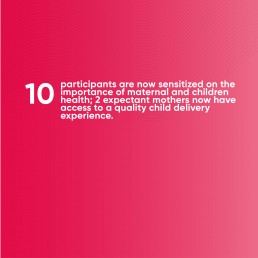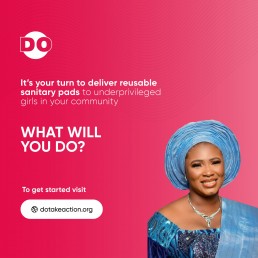THE NEED
There is no job bigger than that of motherhood. The responsibility of bringing a child into this world is one of the greatest roles mothers play in society. And there is nothing as rewarding as the joy a mother feels on hearing their baby’s first cry. At that instant, the pain, challenges and harrowing experience of pregnancy and childbirth become inconsequential. Proud fathers or not so proud fathers, depending on their expectations, would go about with powders to commemorate the safe arrival of their newest family members.
Often, we are caught up in the euphoria of a newly born baby that we fail to consider the health and welfare of their mothers or even the baby’s health. The quality of care a woman receives during pregnancy, delivery, and postpartum affects her health, her child’s health, and the likelihood of seeking care in the future.
According to WHO, data indicates that 810 women approximately die daily from preventable causes related to pregnancy and childbirth. Maternal mortality in Nigeria accounts for 59,000 deaths of women annually. In 2017 alone, about 917 women died from pregnancy and childbirth-related complications. Nigeria is ranked second after India in the global maternal incident rate and the worst in Africa. There is at least one case of maternal mortality in every 20 live births from the report above. Arguably, Nigerian women are 500 times more likely to lose their lives in childbirth when compared to most advanced nations of the world.
Current evidence suggests that the high rate of maternal and neonatal mortality in Nigeria is linked to the three forms of maternal delay; delay in deciding to seek maternal health care; delay in locating and arriving at a medical facility, and delay in receiving skilled pregnancy care when the woman gets to the health facility.
To redress this need, Arinola Olajumoke Folake, a biology graduate from the Tai Solarin University of Education, organized a medical outreach under the DO-Take Action umbrella to sensitize underprivileged women and expectant mothers about healthy practices before, during, and after pregnancy/childbearing. She launched the “Safe Mother, Safe Child” project under Good Health and Wellbeing program; a DO program that addresses key challenges in the health care sector by carrying out advocacy campaigns, health outreaches, capacity building workshops and community infrastructure projects that will ultimately improve quality of health care and impact at least 10 million Nigerians over the next ten years.
The project was carried out at Sabo, Owode, Idiroko. The details of the projects entailed the following;
- A keynote presentation on signs and symptoms of pregnancy, maternal healthcare, causes and prevention of maternal death
- Provided therapeutic guidance for pregnancy and children’s health practices
- A self-assessment test to evaluate the women on their understanding of what has been taught to ensure comprehension and assimilation
In the project, a minimum of 70% of the participants present scored 60% on the Safe Mother, Safe Child test and now know about healthy best practices that ensure safety before, during, and after pregnancy/childbirth. Ten women received quality therapeutic guidance for pregnancy and children’s health practices. In addition, two expectant mothers now have access to a quality child delivery experience. Finally, one GDC was recruited from the participants to organize a Safe Mother, Safe Child outreach program in their community.
Arinola Olajumoke Folake is currently a Customer Care Representative. Surprised she doesn’t work in the health sector, and that is to say, you must be a professional to effect change in your community. Learn from her.
If you enjoyed the story and would like to read more stories like this, sign up for our monthly newsletter to get notified of new stories.
Also, do well to follow our social media handles for more engaging and entertaining content on issues that affect YOU.
